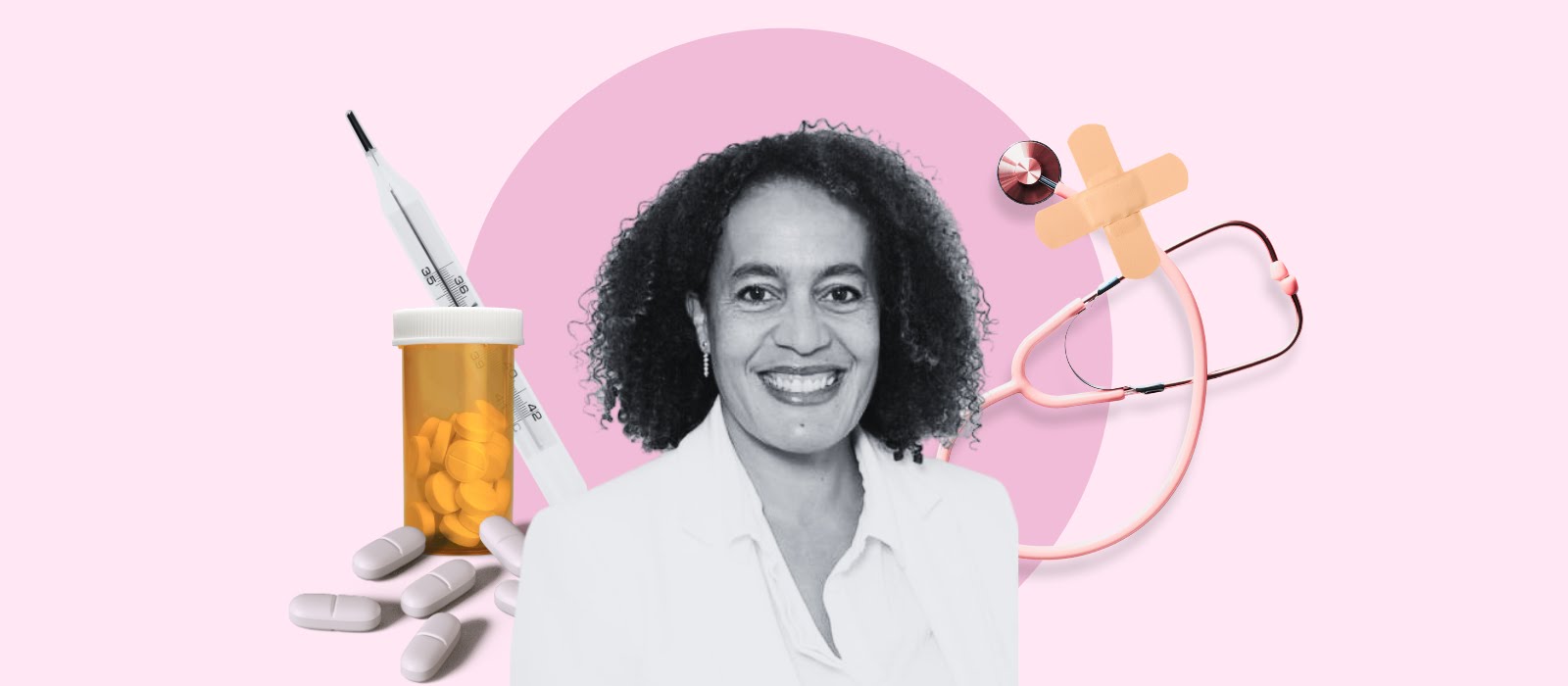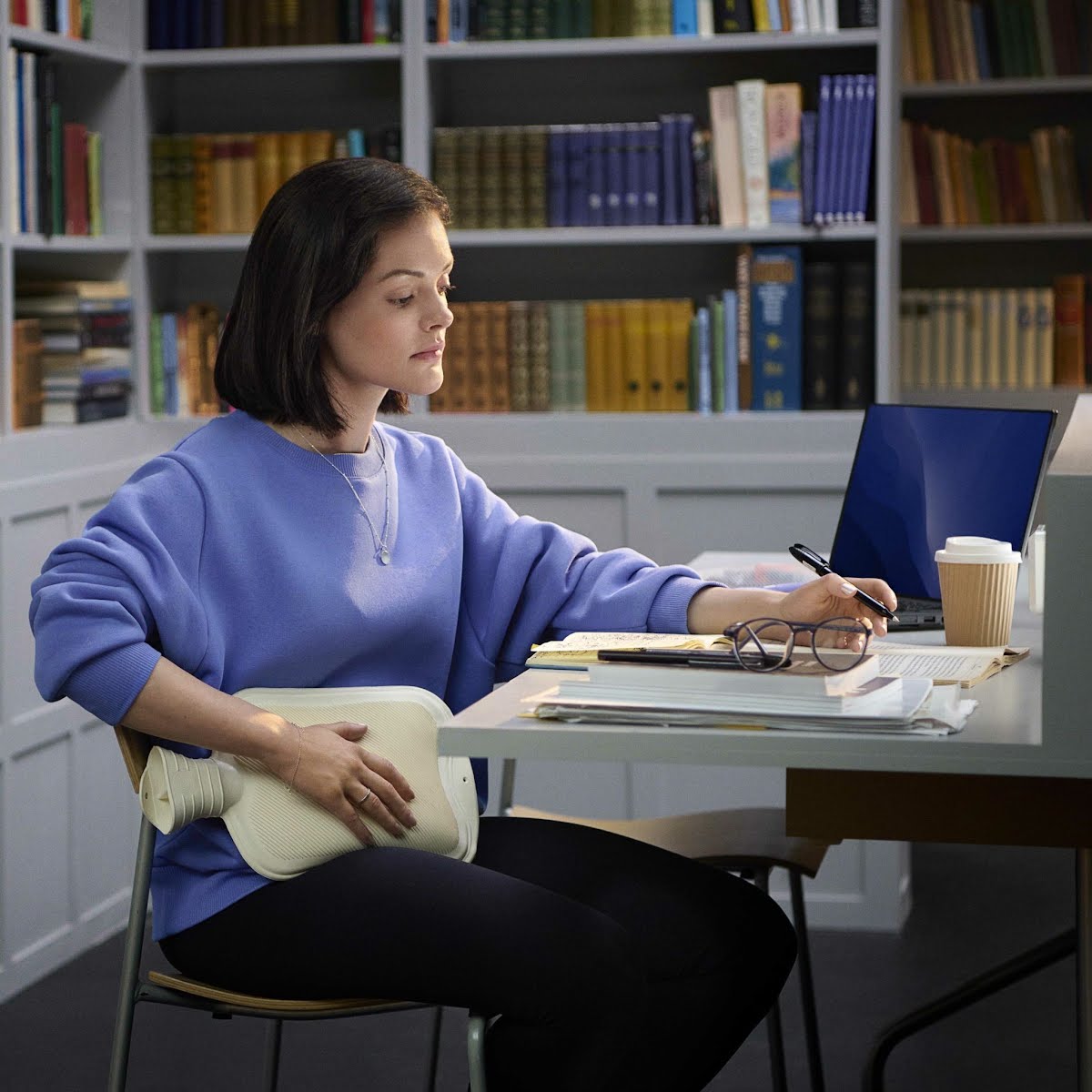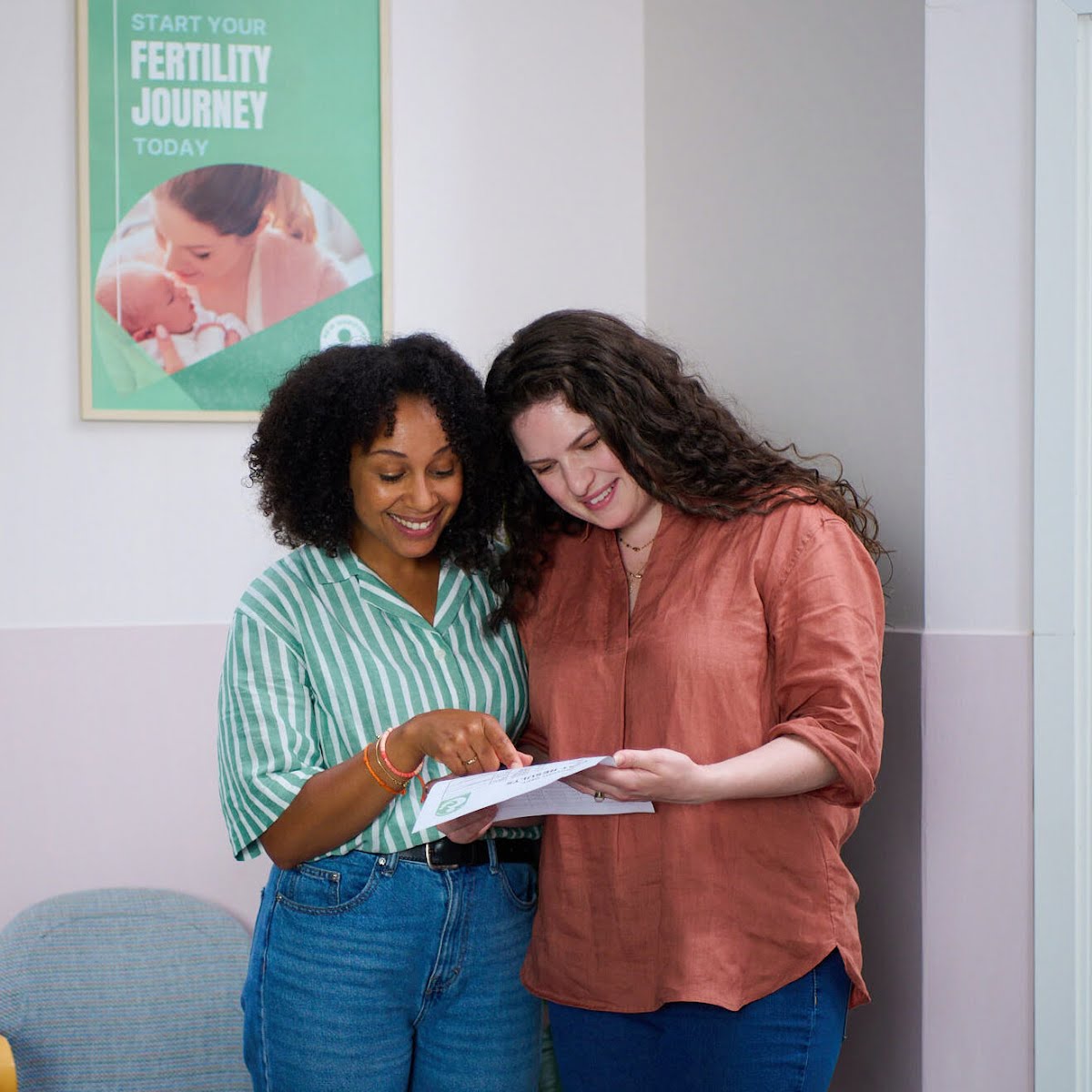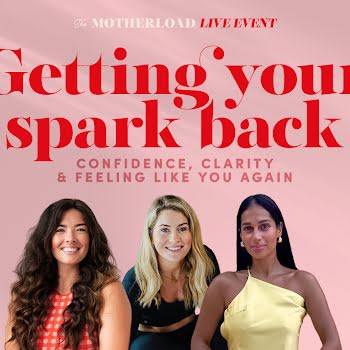
From menstrual cramps to menopause: The GP service women have been waiting for


This digital consultation is changing the game for female health in Ireland. With access to GPs who specialise in menstrual health, fertility, contraception and menopause, this service is empowering women to take control of their health journeys, no matter how busy their lifestyle.
Over half of women in Ireland are worried about a female health issue at every stage of their life, according to a study* by Irish Life Health. More often than not, women feel like these important issues are being overlooked by GPs who are not specialised in this area – 52% of women claimed female healthcare is not well taken care of in Ireland*.
Maybe you’ve been dealing with painful menstrual cramps but have not been checked for endometriosis or PCOS; or your mum is experiencing menopause symptoms but is told she’s ‘overdramatic’ or ‘connecting unrelated symptoms’; or maybe you want to start your fertility journey but instead of referrals for basic blood tests, your GP only recommends a costly visit to a fertility clinic.
This is exactly why Irish Life Health are breaking new ground as the only health insurer to offer members direct access to GPs who are specialists in female health for in-depth video or phone consultations from anywhere in the country. These GPs give members support and advice in the areas of menstrual health, fertility guidance, contraception and menopause, not only creating a safe space for women to ask their burning questions to an understanding, knowledgeable ear, but also enabling those from more rural areas or those with a busy lifestyle to have equal access to health experts.
“It’s a very good service, particularly for women in rural Ireland, or in areas where they don’t have access to a GP or female health specialist,” explains one of the service’s experts Dr Siobhan Anarah-Adoghe. “The majority of the patients opt for a video consultation from their office, home, or in the car between lunchtimes or school runs. I’ve even had a patient video call me on the farm with the cows in the shed in the background. This service is for women anywhere in the country from Donegal down to Kerry.”
So, how does the consultation work?
The benefit, which is digitally led in the beginning, allows members to book a female health consultation via their Irish Life Health online account. For a more personalised experience and to ensure they get the most from their consultation, they can complete a short pre-consult questionnaire.
“The patient makes the appointment, fills out the questionnaire and chooses whether to have a video or telephone consultation,” says Dr Siobhan. “Some people prefer the telephone for privacy but 99% of people choose the video. Then they typically get a 20-minute conversation, bearing in mind the average GP appointments nationally are usually 10-15 minutes. Beforehand, I will have looked over their questionnaire, so I will know in advance if the patient wants to talk about menopause, menstrual health or fertility, and I’ll have a rough idea of what her symptoms are and what she’s asking.”
Another key benefit of this consult is that patients are allowed to have a support person join the call with them, adds Dr Siobhan. For example, if you’re seeking a fertility consult, you can have your partner join; if a mum is a bit nervous to hear about menopause, she can ask her daughter or partner to join; or if your teenager wants to talk about menstrual health, you can join as her mum and support her.
Next steps
During the consult, the GP will explain the factors to consider, the treatment options available and where and how to avail of them. They can also refer the patient for follow-up in-person care if required and guide them to other supports that often form part of their ideal treatment, such as nutrition, physiotherapy and mental health.
“To be fair, and this is very important, the video and phone consults are hugely valuable services, but they are not a substitute for face-to-face, in-person visits, and that is the limitation,” explains Dr Siobhan. “For example, if someone is experiencing painful menstrual cramps, I will always say ‘If you were here with me now, I would put you on the couch and examine your abdomen’. But having said that, in 80% of the cases, you can help people a lot with the video consult.”
Afterwards, members receive everything they discussed with their GP in a post-consult plan, so they can be armed to take the next step on their female health journey.
FAQs – Female Health Questions
To see how this beneficial service works, the IMAGE team tried it firsthand. In an enlightening video consultation with Dr Siobhan, a female health specialist, we asked a few FAQs about common female health issues…
Fertility
I am just starting on my fertility journey, would you recommend I do any tests or take any supplements at the outset? Should my partner do a sperm test?
“Increasingly, there’s a cohort of female patients in their 30s who want to start their family. The average age of first-time moms in Ireland has gone, I think, from 31 to now 32. There are a lot of particularly educated, professional women who are delaying family, and alongside that, we know that one in six to one in seven couples have fertility problems. Therefore, there’s an awareness now among women, so they want to have a general check on their fertility. I usually break it down into a constructive consultation first, starting with their menstrual health. If you’re not having periods, you’re not getting pregnant. That’s a very simple starting point.
“Then depending on clinically, if everything’s ticking, they may be happy enough to leave it with that knowledge, but sometimes we go a little further. Are people up to date with their cervical smears? That’s an important free service from the government. Finally, the next level might be blood tests like hormone profiles or a semen analysis – sometimes it’s recommended, sometimes the patient just wants to be proactive. Afterwards, if anything is indicated or if they want to take it up a step, they may want to go and get an ultrasound, just to make sure the womb, the ovaries and everything are in order.
“At the end of all consultations, I will send a note of our consultation by email back to them via Irish Life Health, so they can take that information and decide, ‘right I’m happy with that knowledge’ or take it back to a doctor or GP that they’re comfortable with and say ‘I have these referrals, can I have these blood tests?’ Another cohort would say ‘right, I’ll come down and have a consultation face-to-face with you in Dublin’ and they can get their bloods done and everything they need.
“The semen test looks at sperm count, morphology and motility, and sometimes that’s the cause of a couple’s fertility issues, and sometimes it’s not. If it is the cause, I recommend going to a urologist or fertility specialist, who recommends supplements and lifestyle modifications. Then maybe three or four months later, they can come and see me, and hopefully, everything has improved.
“For supplements, all females of childbearing age should be taking folic acid. A lot of women know that, but quite a few don’t, so that is one I always recommend. You can buy it over the counter at the pharmacy; you can take it every day or just some days. It’s very important from the day of conception to the first 13 weeks of the baby’s development.”
Menstrual Health
I have painful cramping every month along with migraines, what would you suggest I do to treat this?
“You mentioned two things there: menstrual cramps and migraine – they could be independent, and they could be something serious. Both contraception and period cramps can often be helped with a contraceptive pill, but I wouldn’t give a contraceptive pill to someone with a headache if I hadn’t checked their blood pressure. I have to keep in mind patients’ medical conditions as well. Simple things I can recommend is for them to go get their blood pressure checked first and come back and see me in person for a follow-up.”
Contraception
I have finished having my family, what contraceptive measures would you recommend for myself and/or my partner?
“This is a common question. It’s about tailoring the advice to the individual patient, and that will depend on their age and whether or not they’ve completed their family. If they’ve completed their family, I can recommend something in addition in case they want to pause their family and then conceive later. I may recommend different options also, depending on their medical history and family history. So it depends on their age and situation.”
Menopause
I think I am starting to go through menopause – I’m gaining weight, feeling low and my shoulder keeps freezing. I feel like my general GP isn’t listening to me and I would love your advice on the best steps to take hormonally.
“A huge percentage of our consultations are for menopause. I think that’s probably the single biggest area where women feel the benefit of this service.
“Sometimes women have a lot of symptoms going on in perimenopause and menopause and because of the combination of symptoms, they often don’t realise what’s actually happening to them. So, being able to have a consultation that clarifies what’s happening, normalises it and gives them some tools and holistic management is very valuable. Some women find that very therapeutic in itself.
“The next step then I may discuss is what the benefit of HRT can be, and if they’re suitable for it or not. Sometimes you can initiate that locally, or in conjunction with getting tested. Patients’ own GP can do the test and come back to me with the results.
“Finally, I may recommend seeing them in person. A lot of patients will make the trip down if they’re in Dublin, or if they’re a bit further, sometimes they’ll come down to have that first consult with a blood test, examination and everything. Then they can get initiated on HRT wherever they are in the country and continue from there.”
*Irish Life Health Female Health Research, Red C omnibus, June 2023.
Irish Life Health is the only health insurer to offer members direct access to GPs who are specialists in female health for in-depth video or phone consultations from anywhere. The benefit gives members support and advice in the areas of menstrual health, fertility guidance, contraception and menopause.
Terms & Conditions: Where this benefit is available on your plan, Irish Life Health will provide a contribution towards a video consultation booked with an Irish-based Centric Health GP who is a specialist in female health. They will pay Centric Health directly up to the amount detailed for the number of visits listed on your Table of Cover. You will be required to provide payment details for the remaining amount at the time of booking. Centric Health will take payment 48 hours before your scheduled appointment and once payment is taken it is non-refundable. This amount cannot be claimed against any other benefit on your plan, including your GP visits benefit, as you cannot claim for the same medical expenses twice.
The GP who specialises in female health may recommend additional follow-on services, such as blood tests, scans, or visits to other allied health professionals. These follow-on services are not covered under this benefit, but you may have cover on your plan under another benefit listed on your Table of Cover. This service is not suitable for emergencies or urgent conditions as this may delay your treatment. Where a member is under the age of 18, it is necessary for an adult-dependent on the policy to book the consultation on their behalf. Depending on the nature of the presenting issue, the GP may request the presence of a parent or guardian for those under the age of 18.
























